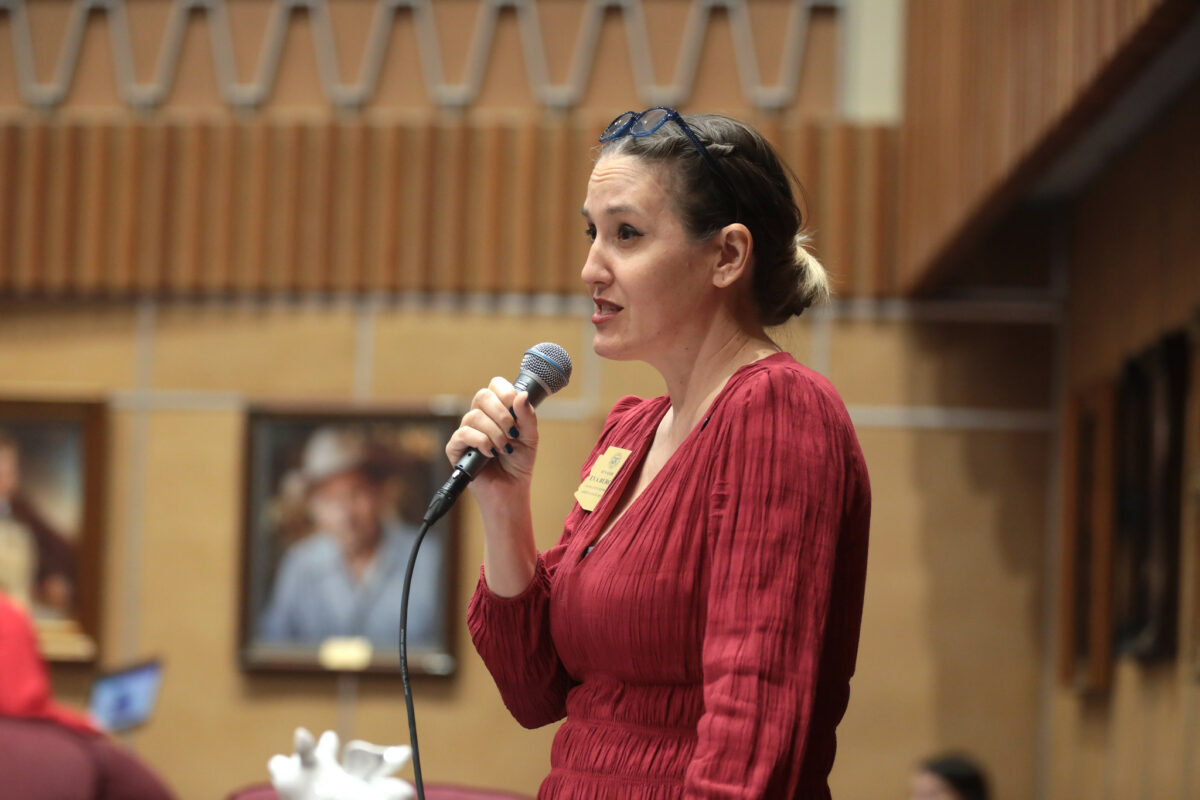
Arizona state Sen. Eva Burch has an important message for lawmakers — she’s getting an abortion whether they like it or not.
Burch made the announcement to her colleagues on Monday while speaking on the Senate floor, revealing that after having numerous ultrasounds and blood draws, her pregnancy is not progressing or viable.
“I have made an appointment to terminate my pregnancy,” said Burch, who is a registered nurse and a mother of two young sons. “I don’t think people should have to justify their abortions, but I’m choosing to talk about why I made this decision because I want us to be able to have meaningful conversations about the reality of how the work that we do in this body impacts people in the real world.”
Messages like Burch’s prove even more meaningful as women’s reproductive rights have been targeted with strict laws and restrictions since the Supreme Court’s overturning of Roe v. Wade in 2022. Fourteen states have since banned abortion with limited exceptions, and seven more states have restricted abortion past certain weeks of pregnancy, according to the Guttmacher Institute. Yet, new data from the Monthly Abortion Provision Study finds that abortion increased by 10% since 2020 — the highest rate measured in the U.S. in over a decade. More women are seeking medication abortion, or abortion pills, which accounted for 63% of all U.S. abortions during 2023, data shows.
Yet, while more women have sought the pill route, restrictions may not just stop at abortion procedures. The Supreme Court is expected to hear oral arguments on March 26 in a case that could impact women’s access to mifepristone. This drug blocks the progesterone hormone needed for pregnancy and is used with misoprostol to end a pregnancy at 10 weeks gestation, according to the U.S. Food and Drug Administration. Reinstating restrictions on mifepristone “would negatively impact people’s lives and decrease abortion access across the country,” Guttmacher’s director of federal policy Amy Friedrich-Karnik said in the institute’s latest report.
In Burch’s home state of Arizona, abortion is currently legal but is prohibited after 15 weeks of pregnancy, or if performed due to the fetus’ sex, race, or a genetic abnormality. If women after 15 weeks seek an abortion, they are allowed to travel outside the state to seek one, according to Planned Parenthood.
In a recent interview with CNN, Burch called her announcement important and “so relevant” to what’s happening to women in Arizona and across the country.
“When people are able to come forward and tell their stories and share what they’re experiencing, that it really humanizes it for people and brings it to the forefront in a more meaningful way,” Burch told CNN’s Abby Phillip.
Aside from healthcare, during her time as state senator, Burch has advocated for voting rights, education, housing and the economy. Discussing abortion, she added, helps raise awareness and engage people who may normally avoid having difficult conversations around the subject.
“I just want to be able to participate in that work and in that conversation of bringing people to the table to talk about the work that we do in the legislature, how it impacts the people of Arizona, and what we can and should be doing differently.”



